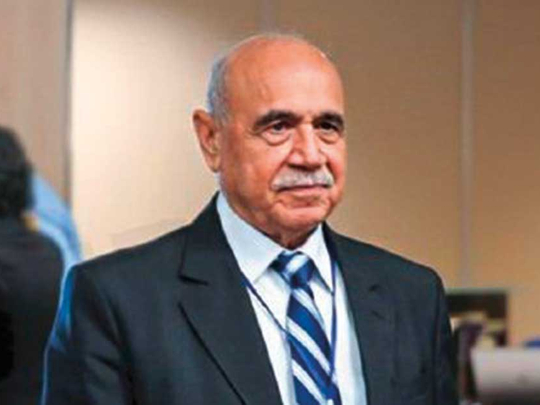
Beirut: The UN special envoy for Syria expressed shock late on Saturday at the death of a leading opposition figure in Damascus who was wounded in a hit-and-run incident outside his home.
Mounir Darwish, 80, was a leading member of Syria’s internationally-backed opposition movement and a familiar figure at peace talks brokered by the United Nations.
His death on Friday night drew accusations of government involvement, poisoning a peace process that is already fractious to the point that the two sides do not sit in the same room.
UN Syria envoy Staffan de Mistura called for “those involved to be identified and brought to justice,” an apparent reference to the hit and run. No official case of death has been offered.
De Mistura said Darwish had stayed in Damascus, rather than seek exile, “as he sought peace and a better future for his country”.
The death did not appear to have been mentioned in pro-government media, and a representative of the information ministry could not be reached for comment.
Colleagues said friends and family members had visited the dissident in hospital on Friday, after an ankle operation to mend injuries suffered in the hit-and-run the day before.
They reported that he had been in good spirits and had been awaiting discharge.
“He even called me to tell me that he’d need to stay in bed for a month but that he was ready to receive any documents I needed him to read,” said Firas Al Khalidi, who heads the Cairo section of Syria’s political opposition, of which Darwish was a part.
The Cairo bloc is one of three that has signed on to an opposition platform as a way to present a united front at the UN-brokered talks in Geneva.
The delegates have dropped all preconditions to the peace negotiations, backing down from a demand that President Bashar AL Assad step down.
Darwish had been concerned that the Syrian government was growing increasingly hostile to his activities, according to Al Khalidi.
“When I called recently to ask about a meeting in Riyadh, he said he didn’t want to leave because he was worried,” Al Khalidi said. “He would tell me, ‘Be careful, Firas.’”
Six years into Syria’s war, a coalition of pro-Al Assad forces has reestablished control over most of the country, with rebel forces hemmed into pockets of the north and south.
Although hopes for an opposition breakthrough at the negotiating table are low, Western officials say efforts to unify Syria’s opposition would increase pressure on Al Assad’s government.
“It is about removing the argument that the regime kept on making that it had no opposition to negotiate with,” one diplomat said.












